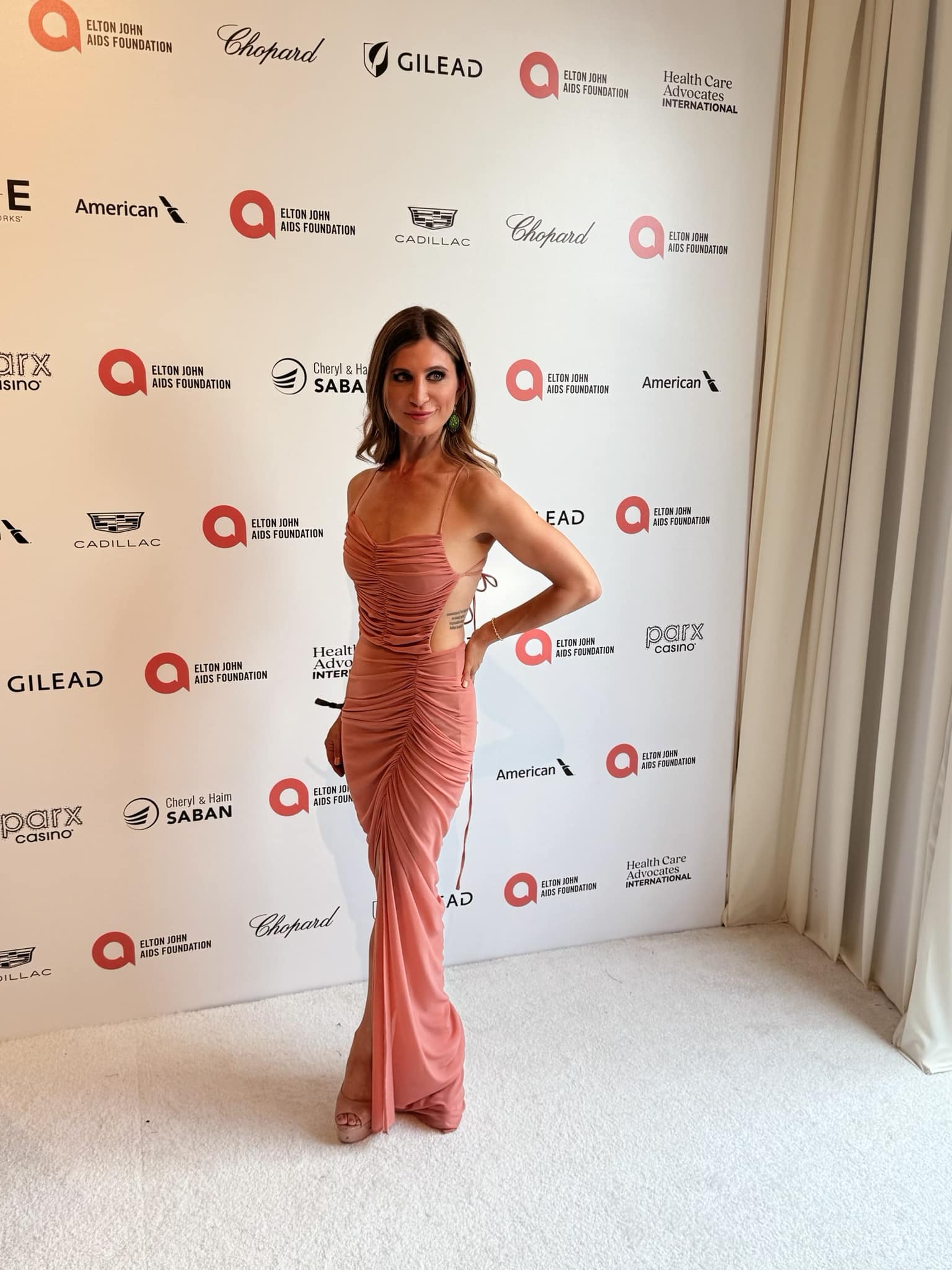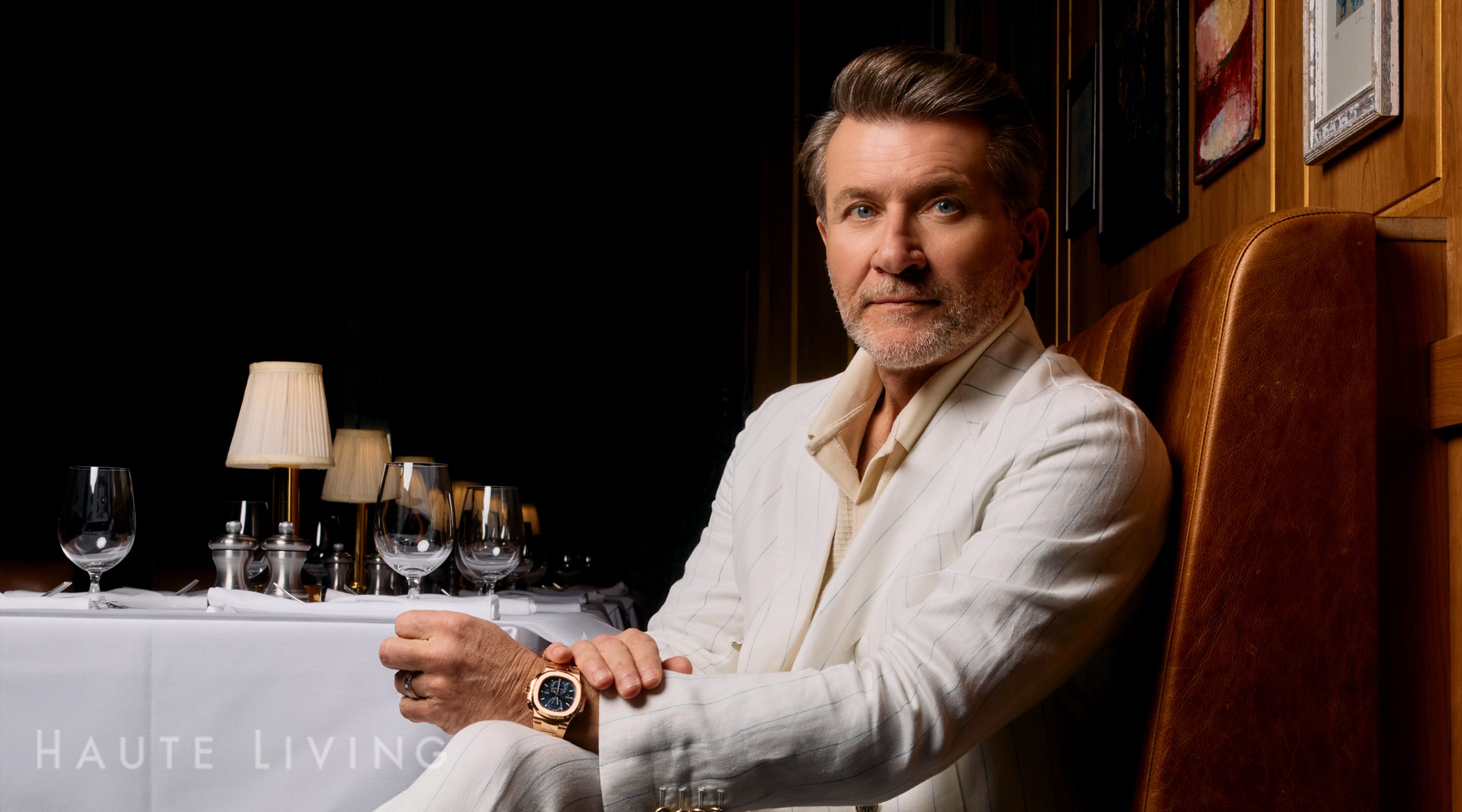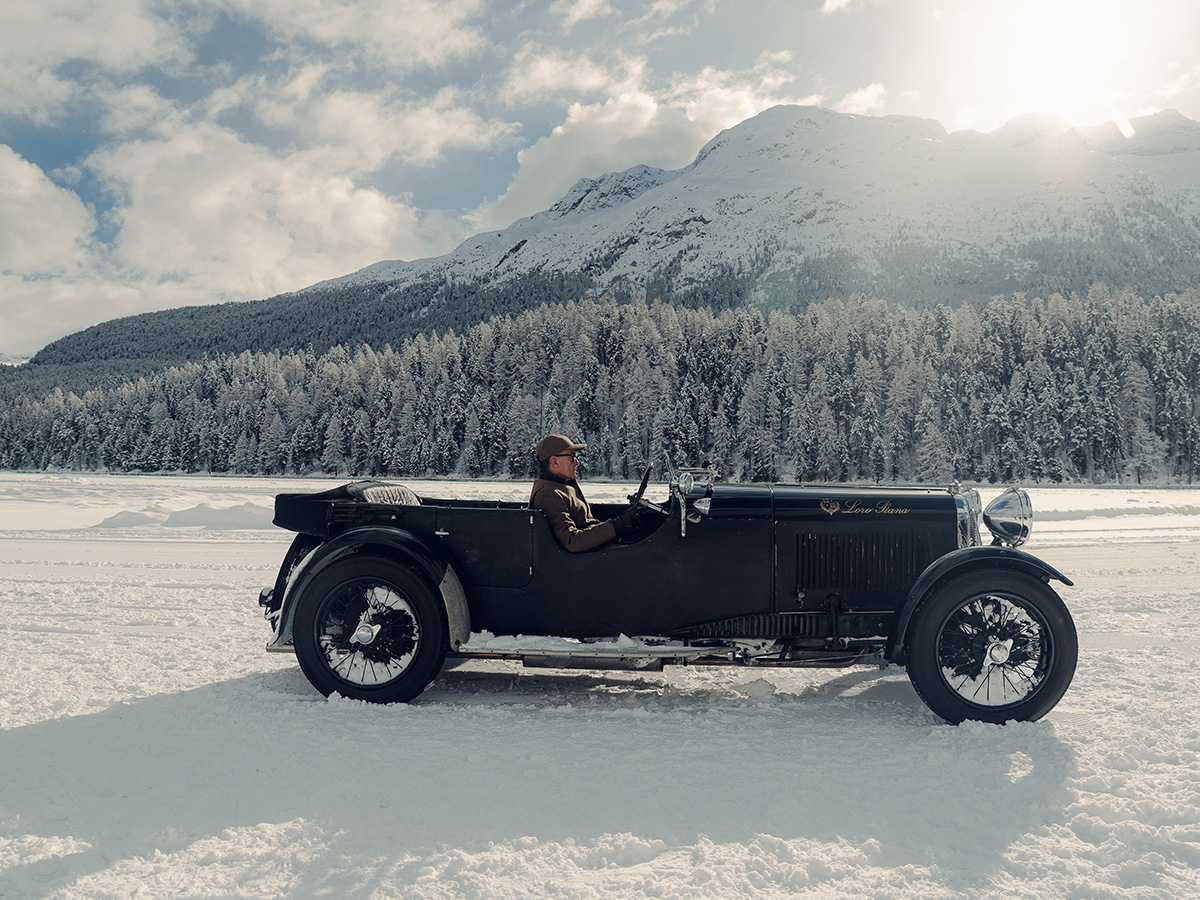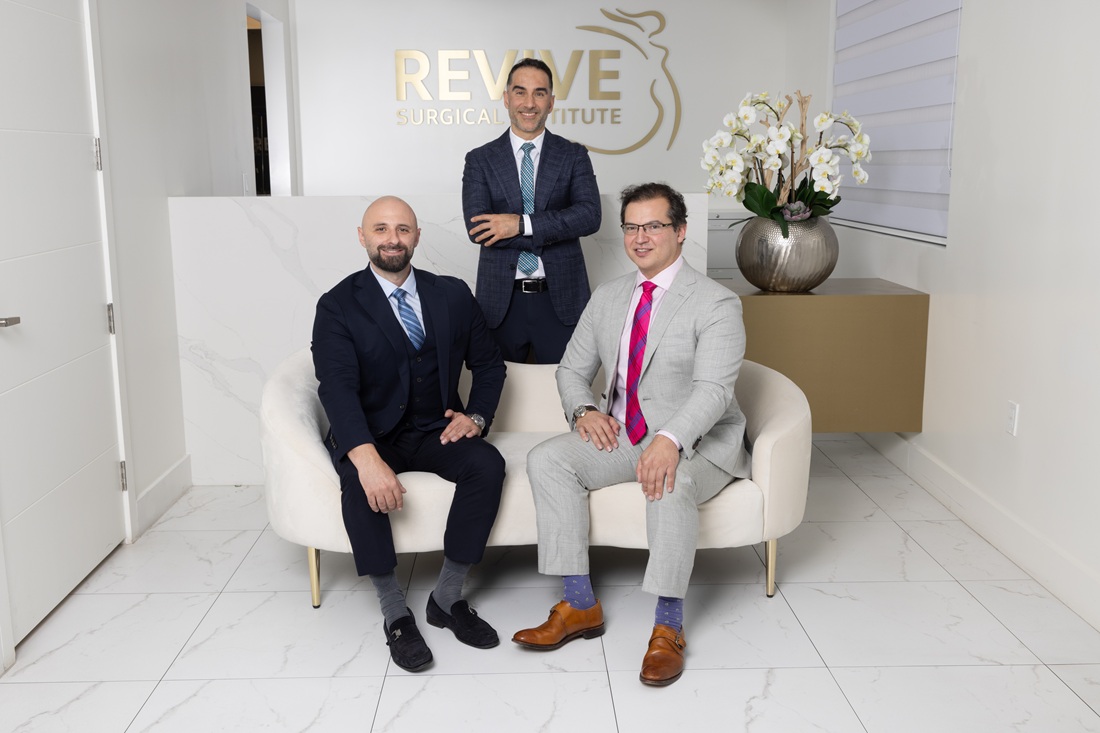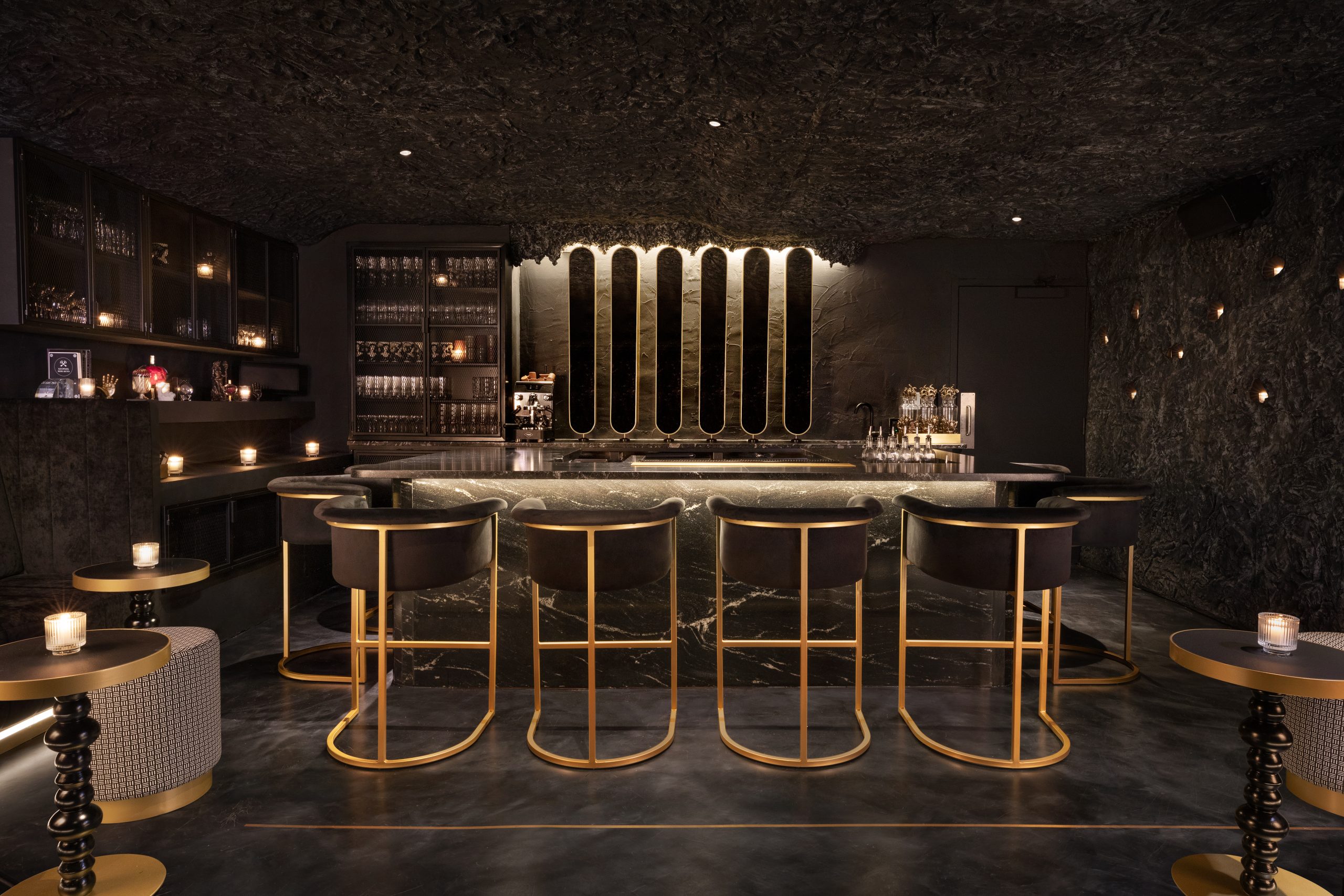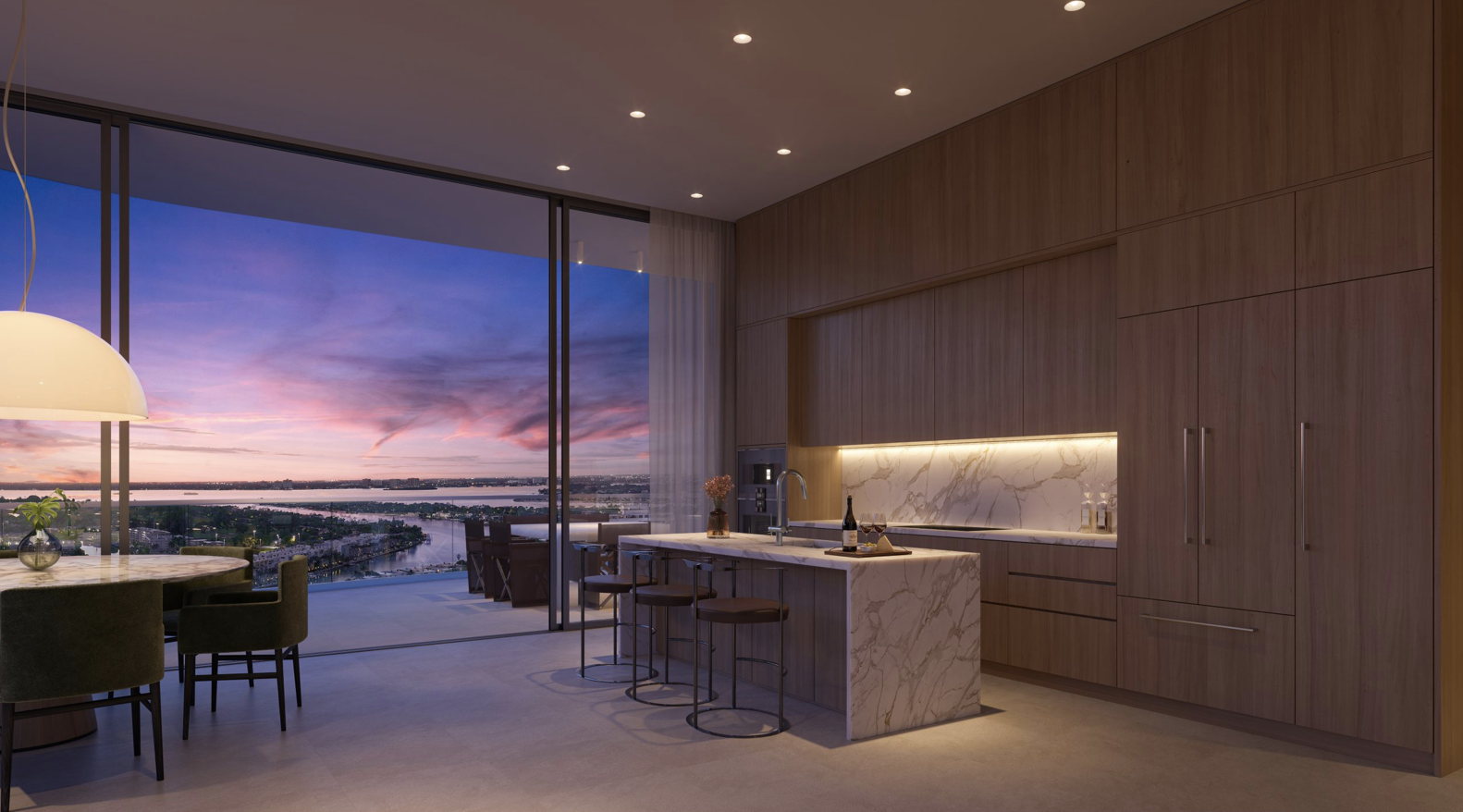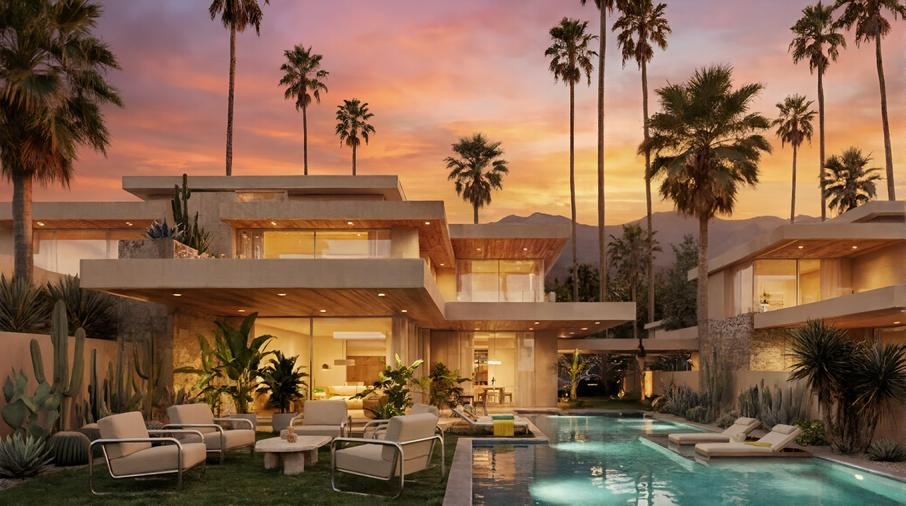Vegas Golden Knights Owner Bill Foley Is Building An Empire In Las Vegas — And That Might Include An NBA Team
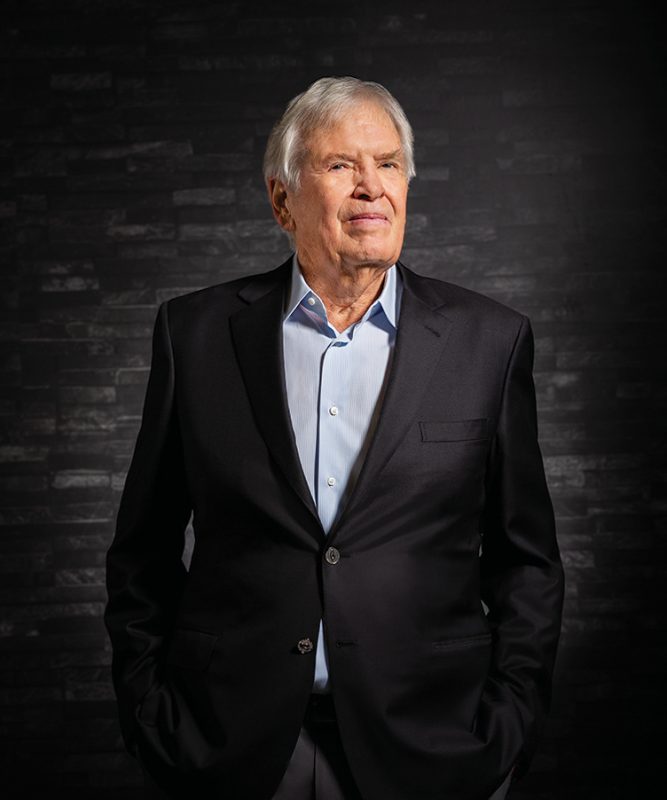 Photo Credit: Sabin Orr
Photo Credit: Sabin Orr
BY LAURA SCHREFFLER
PHOTOGRAPHY SABIN ORR
SHOT ON LOCATION AT CITY NATIONAL ARENA, LAS VEGAS
There are many reasons why a top-tier National Hockey League player would choose to sign with the Vegas Golden Knights, but unbelievably, one of the main reasons is… free car washes? Yep, you read that right.
It all started when Marc-Andre Fleury, now of the Chicago Blackhawks, joined the Sin City team during its debut season in 2017. An unexpected trade from the Pittsburgh Penguins to the Golden Knights, the league’s 31st franchise and Las Vegas’ first professional sports team, left the French-Canadian goalie with limited time to get basic needs — like cleaning his car — met. “I do special things for the players that no other team does,” Bill Foley, the NHL team’s majority owner, explains over Zoom from his office at City National Arena in Summerlin. “That first year, when Fleury came to play, he showed up with a dirty car. Two days later, I had organized a free car wash and detailing for all the players, three times a week. It really cost nothing, like $150 a car, but the players were so impressed by it.” In fact, he claims, “the reason Zach Whitecloud [decided to join the join the team in 2018] was the free car wash and detailing.”
Be that as it may, it’s not the only way Foley takes care of his team. They receive fully catered, health-conscious breakfast and lunch every day. They can charter one of Foley’s many airplanes, which include three G280s and a G550 Gulfstream. They’re set up with doctors and dentists, real estate agents to get into the nicest neighborhoods in Summerlin or Henderson and guides so their kids get into the right schools. No ask is too big. “I tell them, ‘My job is to make sure you have time to play and win. And your job is to win.’ That’s the culture,” Foley says.
Winning aside, this kind of hands-on approach isn’t exactly the norm for professional sports team owners. But Foley, who is on the cusp of turning 77, has been in the business world for long enough — nearly 40 years — to know that he needed to do things differently to succeed. So he employed a similar strategy to the one that has made his Fortune 500 company, Fidelity National Inc. (NYSE: FNF), a leading provider of title insurance and settlement services to the real estate and mortgage industries, and of which he currently serves as chairman of the board of directors, consistently named one of the best managed, most admired and best big companies in America.
And although Fidelity could be considered his bread and butter, he’s also the owner of Foley Family Wines; executive chairman of the board for Black Knight Financial Services (NYSE: BKFS), a provider of integrated technology, services and data solutions to the mortgage industry; chairman of Glacier Restaurant Group, LLC, the largest restaurant business headquartered in Montana; the developer of Rock Creek Cattle Company, a 40,000-acre working ranch in Montana; owner of a slew of hospitality venues from New Zealand to California, including Santa Barbara’s Hotel Californian and Blackbird restaurant, Hotel Les Mars and Chalkboard Restaurant in Healdsburg, California, Whitefish Mountain in Montana, and Wharekauhau Resort in the Wairarapa wine region of New Zealand.
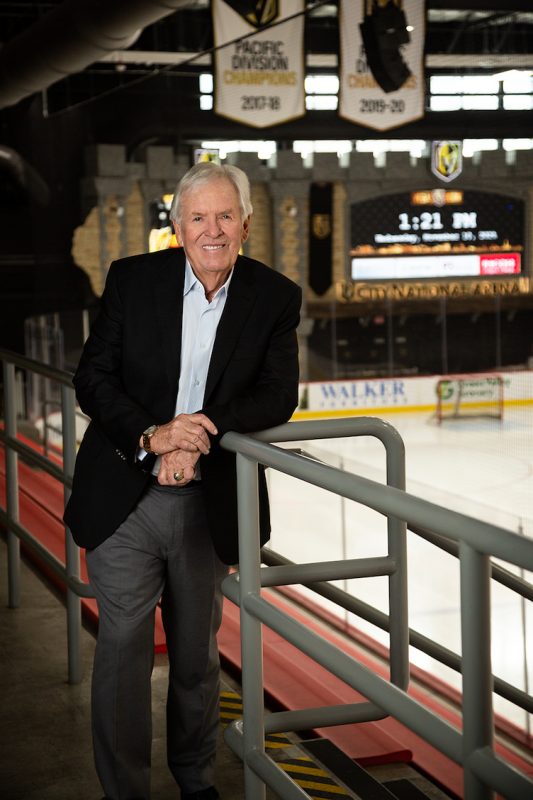 Photo Credit: Sabin Orr
Photo Credit: Sabin Orr
His career trajectory is even more fascinating given that he started off in the military. He graduated from West Point, where he attained the rank of captain and also earned his B.S. in engineering before deciding to become a lawyer. Following his legal tenure in corporate and real estate law, Foley became affiliated with Fidelity.
So — how did a former army officer turned lawyer turned investor wind up owning a major league hockey team?
“I fell into it a little bit,” Foley says. “The Maloof brothers [Joe and Gavin, Las Vegas-based super investors] came to me [about a decade ago, when the NFL team Jacksonville Jaguars] were for sale. They said, ‘Let’s buy the Jaguars!’ I told them, ‘You can’t afford it. It’s going to be a billion-and-a-half dollars.’ Plus, whatever I buy, I want to buy in a place where I’ll enjoy being. I’ll want to move there. So I told them, ‘I’m not going to do football in Jacksonville.’ It was the right time in my career to get back to California. I was born in Texas, but I’m a Westerner; I spent most of my career out West. A few years ago, they came back with, ‘Well, what about hockey, and what about Las Vegas?’ I said, ‘Well, that’s interesting.’ But I didn’t take it seriously at first.”
But when he started meeting with NHL commissioner Gary Bettman, excitement started to kick in. “He said, ‘I’ll guide you through the process.’ So we started doing these meet and greets, and we called ourselves the Las Vegas Founding 50. Those 50 people were supposed to sell 50 tickets each, which would have come to 2,500 season tickets. But we actually had 75 people, so by the time we were done, we had sold 11,000 season ticket deposits for a team that didn’t exist, playing in an arena that hadn’t been built. That’s when I knew we were on to something.”
His Spidey sense was correct. The Vegas Golden Knights were one of the few expansion franchises to experience immediate success. They’ve qualified for the Stanley Cup playoffs in all four of their seasons and, in that first year, even played in the finals.
Not that Foley was surprised, given how instrumental he was in making the team a success even before there was a team. “I had a blank sheet of paper. We created a culture here that was basically team-oriented. Coming from an army background, everything is about the team. We say, ‘My mission, my men, myself.’ And that’s how we set the team up. I wanted to take some of the culture that had been instilled in me at West Point: always making sacrifices for the greater good. I came up with the concept of the Golden Knights; the knights protect the unprotected. The knight always advances, never retreats, never gives up, never gives in. That was the baseline for the type of people we drafted.”
The most important thing he looks for is character. “Everything we’ve done has been about character,” he says. “Bringing the right people in, making sure they’re good teammates. Making sure they’re going to be taking care of the people they’re playing with. And it’s worked. I believe we’re unique in that kind of thought process.”
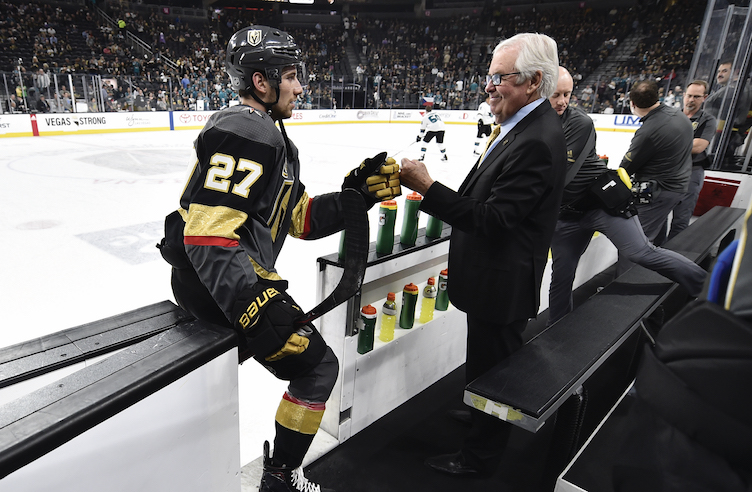
Photo Credit: Foley Family Wines
His winning strategy, admittedly, is also quite unique. “When I looked at the other hockey team owners, I analyzed every ownership group, and I knew I could beat them,” he says. “Some are owned by corporations. If they’re owned by a family, that second generation doesn’t really care. They might be owned by a trust, which means really easy competition. I tried to hire the best president and best general manager I could find. I worked hard at it. Once that happened, I stepped aside. I get involved, and I want to know what’s happening, but I don’t interfere.”
Instead, he offers guidance. “I feel very proud of what we’ve done here in Las Vegas. [When the team debuted], I said, ‘Guys, you’ve got to go out and you’ve got to become part of the community.’ They went to police stations, to fire stations, to hospitals. Our team got embedded in the city, and the city adopted us. We’re a special kind of club.”
So special that he’s decided to create more of them. He recently invested in the Minor League Hockey team the Henderson Silver Knights, as well as a still-unnamed Indoor Football League venture with Dollar Loan Center founder/CEO Chuck Brennan. He’s currently building an $84 million, 6,000-seat arena, slated for a spring 2022 opening.
“I’m happy we have more sports teams here,” he says. “Vegas is not a 2.5 million population city. There are 45 million people who come through McCarran airport or drive through here. It’s one of the largest cities in America, and there’s a lot of capacity for entertainment.”
So much, in fact, that, he says, “We’re actually working on getting another major league sports team out here right now.” Foley is doing his darndest to make sure that, when (not if) a National Basketball Association team comes to Vegas, it will have his name attached to it.
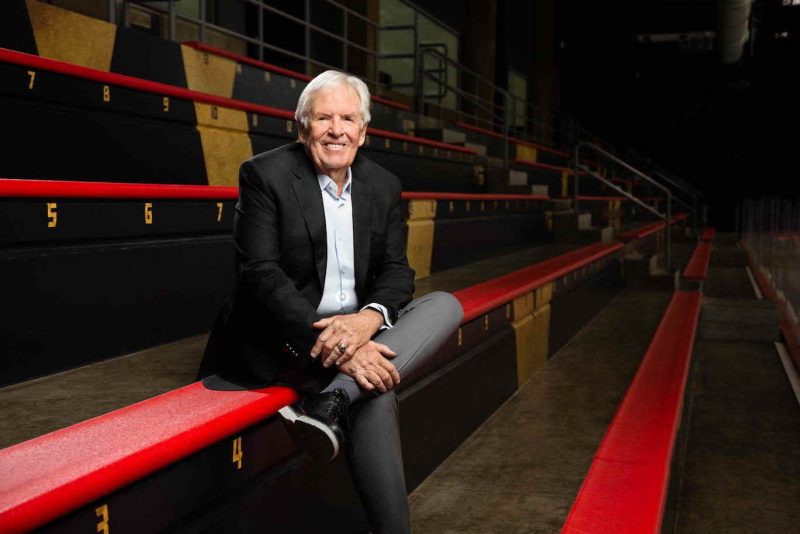 Photo Credit: Sabin Orr
Photo Credit: Sabin Orr
“We’re here, we have all the connections, we have all the relationships, we have all the governmental relations. We’ve been good partners to the state, the county, the city of Las Vegas, the city of Henderson. We deliver. We don’t fool around,” he says, noting that it’s early days for discussions, but the plan is to bring an existing team to Nevada, similar to the Raiders’ move from Oakland. “A lot of people want to invest with me in an NBA team. I know it’s going to be complicated, but it always is.”
Foley isn’t worried; he’s up to the challenge. But potential investors, take note: he isn’t playing around — he’s playing to win. Take the Golden Knights as an example, or a warning. “The Maloofs kind of faded away; they now own about 1 percent of the team. I own about 66 percent. They knew from day one that this is the way it would end up going. I said, ‘Look, if we’re going to get involved, I’m the GP. You’re a limited partner — and there’s nothing more limiting than being a partner with Bill Foley.’”
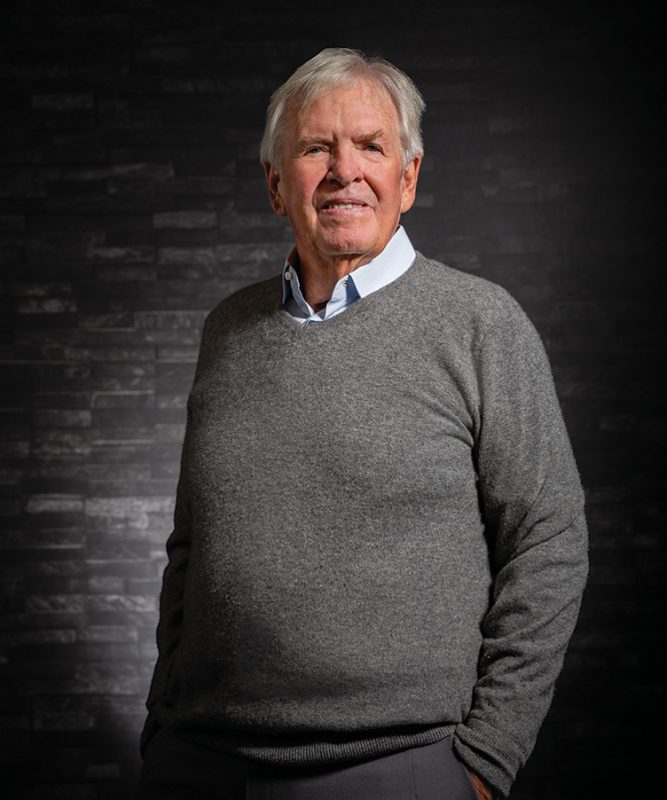 Photo Credit: Sabin Orr
Photo Credit: Sabin Orr
BEFORE WE MEET OVER ZOOM, I’m already in awe of Bill Foley. He’s the owner (and therefore master conceiver) of one of the most magical hotels on the planet, Wharekauhau, an Edwardian-style manor just outside Wellington, New Zealand, beloved by royals Prince William and Kate Middleton.
He’ll visit the property next November for the first time since February 2020 — which, you will remember, is when the Covid-19 shit started hitting the fan — to open a new tasting room, barrel room, restaurant and distillery for his Lighthouse Gin inside nearby winery Te Kairanga. No doubt he’ll also put in some face time at his other indigenous wineries, Roaring Meg, Mt Difficulty, Vavasour, Clifford Bay, Dashwood and Grove Mill.
Since deciding not to retire a decade ago, he opted to focus on his passions, hospitality and wine (not necessarily in that order). His goal is to create or buy wineries, build hotels and perhaps even open restaurants in each destination he loves.
He’s done a pretty bang-up job of making his dreams a reality. Under the Foley Family Wines umbrella, he’s currently responsible for Chalone Vineyard, El Pino Club, EOS, Firestone Vineyard, Foley Estates and Lincourt Vineyard on the Central Coast; Foley Johnson, Kuleto Estate and Merus in Napa Valley (he also owned the gorgeous Calistoga Ranch, which burned down three years ago); Acrobat, Headturner Wine Co., the Four Graces and Three Rivers in the Pacific Northwest; Banshee, Chalk Hill Estate, Ferrari-Carano, Foley Sonoma, Lancaster, Chalk Hill, Rickshaw, Roth Estate and Sebastiani in Sonoma, as well as Hotel Le Mars and Chalkboard restaurant; Hotel Californian (which he purchased in September) and Blackbird restaurant in Santa Barbara; Lucien Albrecht in France; and Nieto Senetiner in Argentina.
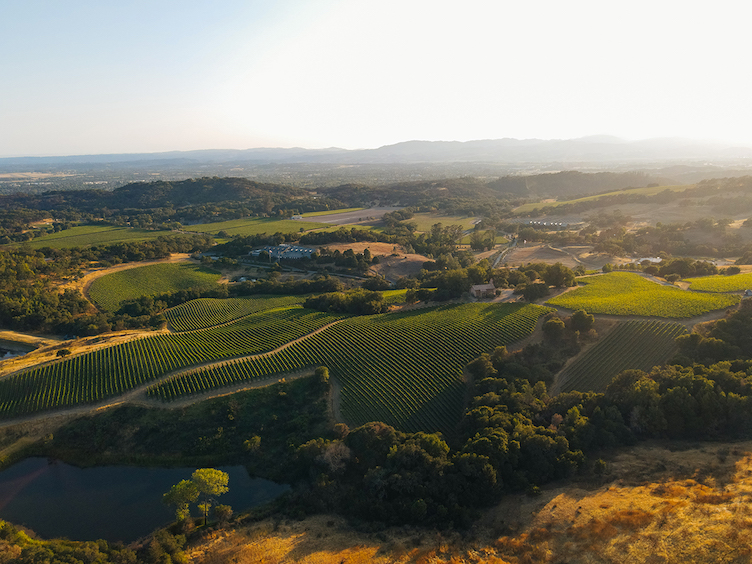
Photo Credit: Foley Family Wines
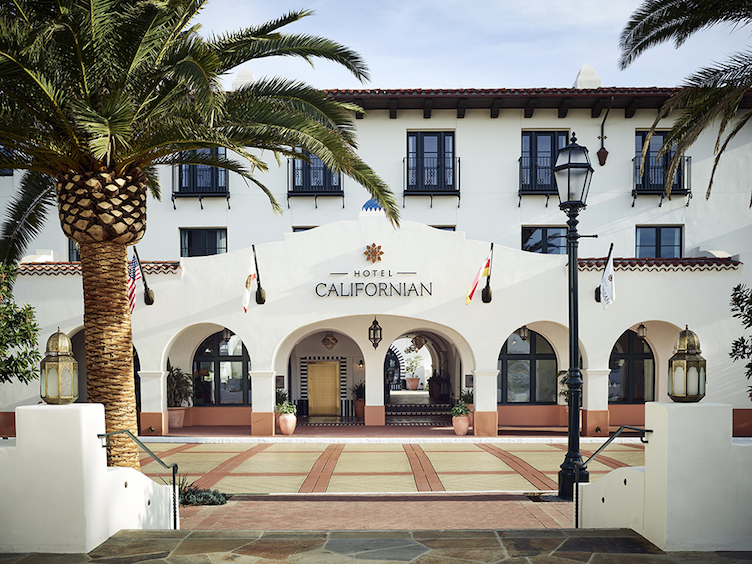 Photo Credit: Hotel Californian
Photo Credit: Hotel Californian
Bill Foley does not mess around.
“I’ve been involved in a lot of different public companies in my career, and all types of different industries, though primarily software development and financial services. I’ve had a good time, and it’s been rewarding financially. But I was going to retire. I was going to get out of all my businesses. But then I got into the wine business and went back to work and kept on building.”
He elaborates, saying, “The first time I was going to retire was back in the late ’90s. I chose Santa Barbara because the climate is very similar to Burgundy; there’s tons of limestone in the soil when you get into the Santa Rita Hills.” While planning his retirement, he also decided to dabble in the wine world. Why not? It was ripe for the picking, so to speak. But it didn’t go as planned. “My first venture was a company that folded two years later because it was a disaster. But then we started getting a little more serious about it. I started understanding the business a little better. I kept on realizing, ‘I’m not big enough. I’m doing 12,000 cases — this is nothing.’ We bought another winery to get to 100,000 cases. And that was nothing. We kept on growing the business. We have about 5,000, 6,000 acres of vineyards now, and we control the whole process, which I really like. We’re growing the right fruit, for the right location, for the right program, and pricing it properly. I’ve learned quite a bit about wine over the past 20 years or so, from bud break to flowering to harvest. I’ve really enjoyed it.”
Foley tends to follow his nose (and his palate) in search of pinot noir, chardonnay and both white and red Burgundies, attempting to hit all the appellations, with a varietal (or three) he enjoys drinking at each. The only place he’s not located at the moment — that he’d like to be, that is — is Paso Robles in San Luis Obispo County on the Central Coast.
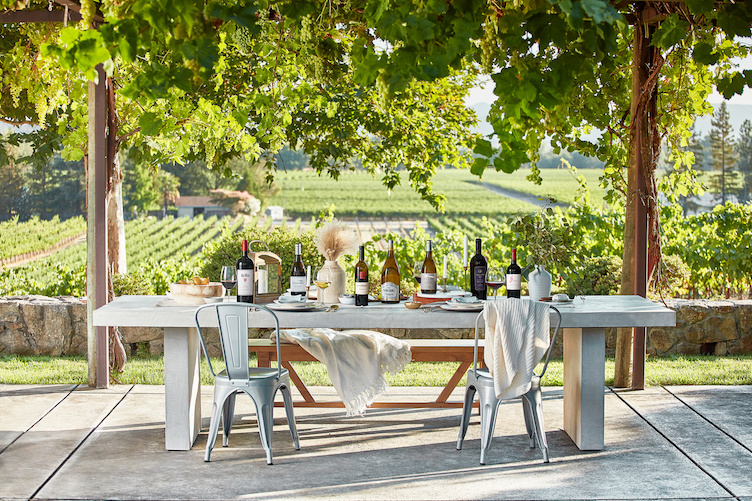
Photo Credit: SARA SANGER
“There are some great Syrahs and grenaches in Paso, and some really good cabernets. I’ve got my eye on one good property there that could work out.” Another goal: to double down on his Napa Valley efforts and purchase some upscale wineries there. “We’re just trying to add premium products to our portfolio,” he explains, noting, “I’m trying to acquire hotels that are in wine country. We bought Hotel Californian, which ties in nicely with our Santa Barbara wineries. We’ve got our eye on a property up in Dundee, Oregon, which would tie right into our Oregon properties. I’m in the process of building a hotel in Healdsburg. That’s what I’m working on now.”
It’s no surprise (just strategic, forward thinking) that he’s putting some effort into Santa Barbara, which was just named wine region of the year by Wine Enthusiast — mere months after his purchase of Hotel Californian. He’ll be opening a food and wine society tasting room on Mason and State Street around the new year, as well as redoing Blackbird, transforming it into a steakhouse.
Not going to lie, his drive is a little exhausting… but extremely inspiring. You don’t stop. You can’t stop, I say. “I’m busier now than I was ten years ago,” he responds. “It’s pretty silly.”
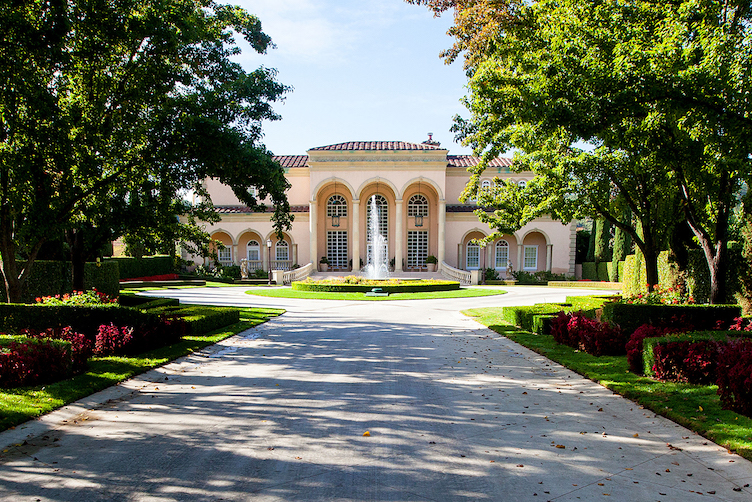
Photo Credit: Foley Family Wines
And while he says the greatest luxury he can imagine is “being on one of my properties where we have a house and being in the middle of vineyard — really being alone — walking with my golden retriever, Nala,” I have to imagine that Bill Foley is happy to indulge in that little luxury only so often. He realizes that the harder you work, the greater the reward, but too much of a good thing can make you stagnant. Which obviously does not apply to winning — for his team, for his company, in his life.
Before we sign off, he asks me if I know what Cannae means, Cannae Holdings being the parent company under which his Fidelity National Financial, Fidelity National Information Services, Black Knight, Ceridian and Dun & Bradstreet fall. I do not.
“The Battle of Cannae was Hannibal’s greatest victory over the Romans,” he says, and laughs.
Go, fight, win, indeed.
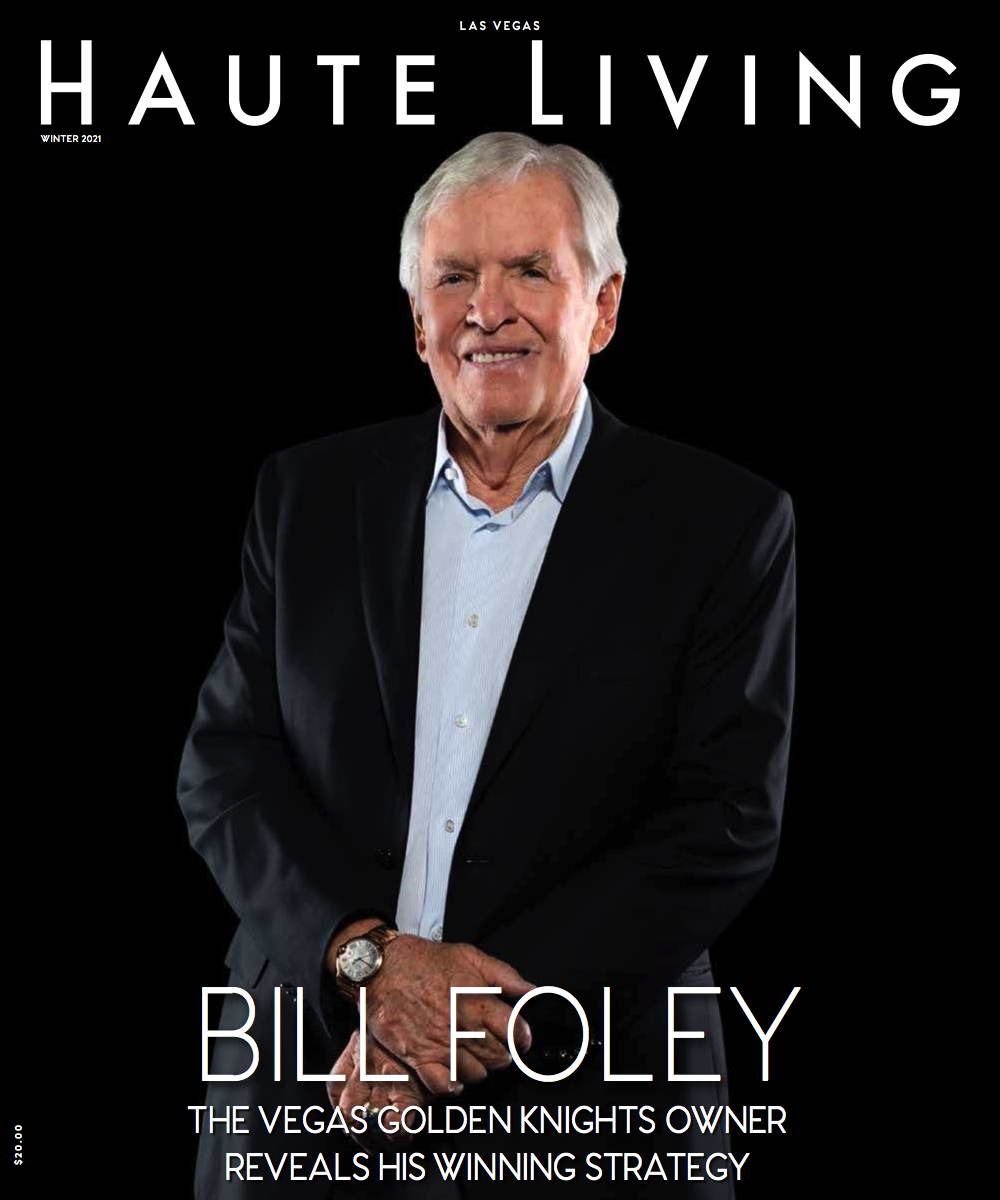 Photo Credit: Sabin Orr
Photo Credit: Sabin Orr

